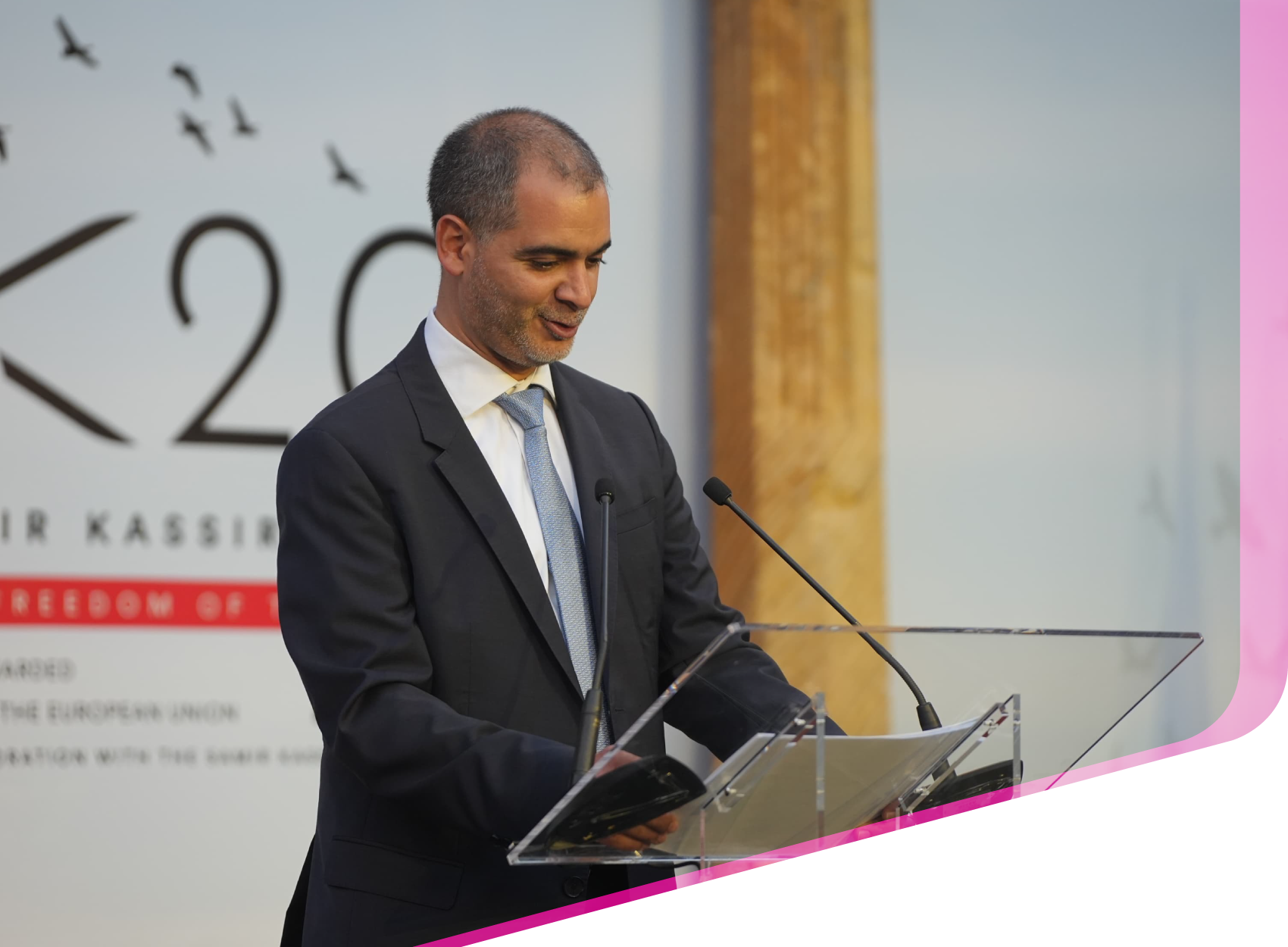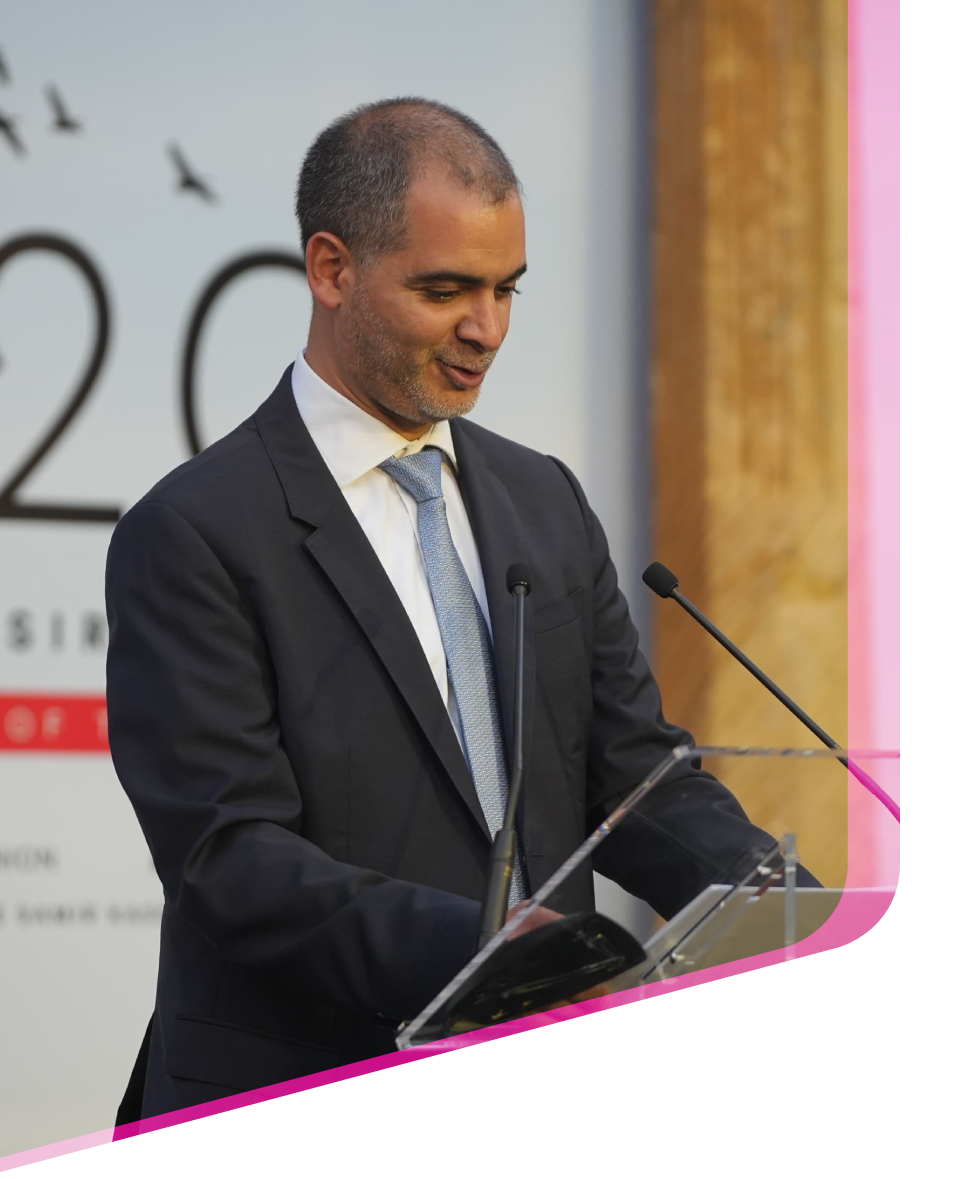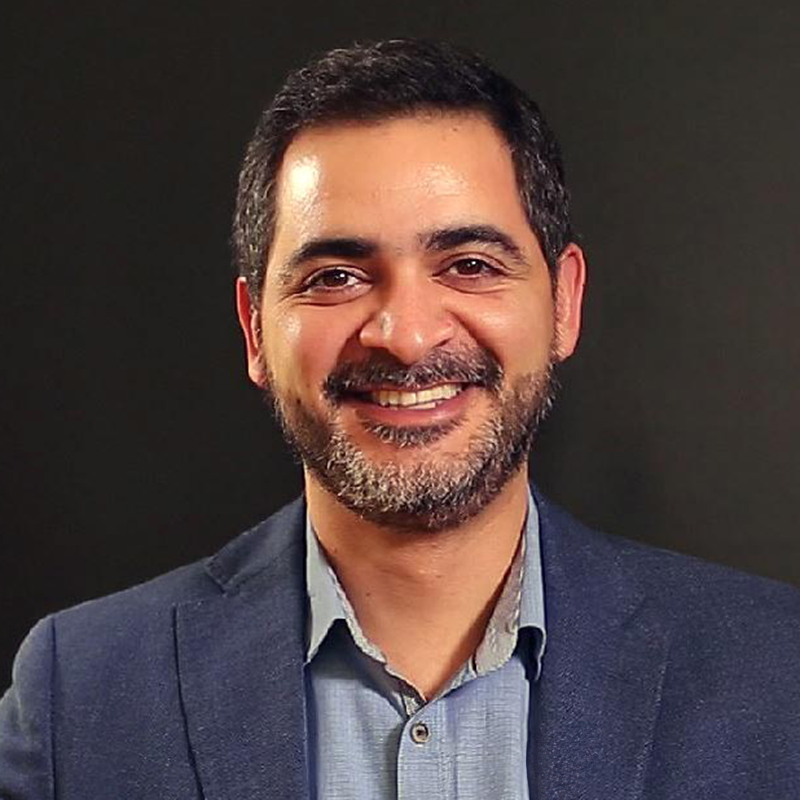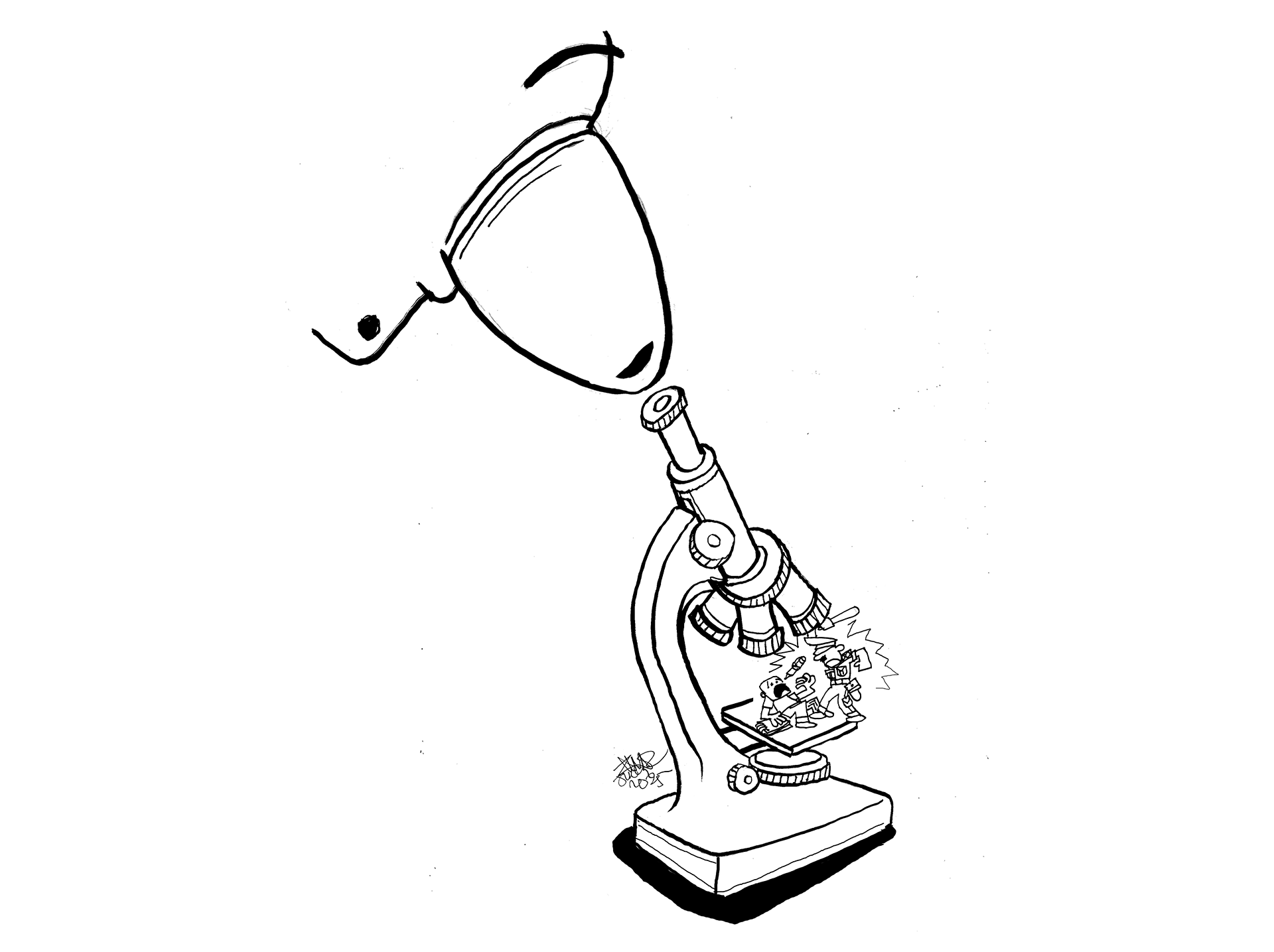
Lebanon
Lebanon
Lebanon
Ayman Mhanna
Ayman Mhanna
Ayman Mhanna
Executive Director of the Samir Kassir Foundation (SKF)
Executive Director of the Samir Kassir Foundation (SKF)
Executive Director of the Samir Kassir Foundation (SKF)

Lebanon
Ayman Mhanna
Executive Director of the Samir Kassir Foundation (SKF)
“Supporting free expression is how we build better democracies.”

VITA
Ayman Mhanna is the Executive Director of the Samir Kassir Foundation (SKF), a leading organization defending freedom of expression and supporting independent media across the Levant. Since joining SKF in 2011, Ayman has spearheaded initiatives to monitor and combat violations against journalists and artists, advocate for progressive legislation, and support the sustainability of independent media through research, capacity-building, and innovation. Under his leadership, SKF has grown into a regional reference for media development and journalist protection. In 2016 and 2017, Ayman also served as Executive Director of the Global Forum for Media Development (GFMD), a coalition of over 200 media development and journalism support organizations worldwide. During his tenure, he expanded GFMD’s global policy influence and strengthened its role in defending journalism as a public good. From 2007 to 2011, Ayman was Senior Program Officer at the National Democratic Institute (NDI), where he led projects on election monitoring, democratic reform, and civil society engagement in public policymaking across the Middle East. In parallel with his advocacy work, Ayman has contributed to academic life as a visiting professor at the College of Europe in Natolin (since 2020) and as a lecturer in policy development and communication at Saint-Joseph University in Beirut (2011–2016). He holds a master’s degree in International Affairs from Sciences Po Paris and a bachelor’s degree in Economics from Saint Joseph University in Beirut. He is also an alumnus of the European Young Leaders – MENA chapter, organized by Friends of Europe (class of 2017).
What communities does your work aim to protect?
At the Samir Kassir Foundation, we defend freedom of expression, particularly press and cultural freedoms. This includes journalists, videographers, artists, and playwrights. However, the real beneficiary is society itself. Access to reliable and independent information is essential to informed citizenship. Supporting free expression is how we build better democracies.
What do you consider the SKF's most meaningful achievements in recent years?
We are proud of being agile. When Beirut’s port exploded, we provided urgent support to displaced media workers, replacing their equipment and finding them housing. When independent journalists were targeted by smear campaigns, we tracked and exposed coordinated disinformation networks behind them. We developed predictive tools to detect attacks early. Globally, we brought Arab perspectives into discussions around AI and freedom of information. Most notably, we established the only regional safe-hosting program for Arab journalists fleeing authoritarian repression – a response that bureaucratic humanitarian visa systems failed to provide.
How do you navigate shrinking civic space across the region?
Since the Arab Spring, civic space has been shrinking. We respond through three pillars: First, we focus on safety by providing physical protection, digital training, and emergency support. Second, we support editorial independence, especially in media systems co-opted by political and financial power. Third, we invest in research so that our work is evidence-based, not donor-trend driven. We prepare for crises before they hit, and our approach is always grounded in values, not opportunism.

What risks has SKF faced in its work?
We have been relatively lucky; there have been no death threats. However, pressure comes in different forms. Staff have been questioned by security services. More insidiously, coordinated smear campaigns have tried to tarnish our reputation, suggesting hidden agendas. We respond with transparency and data. For example, when banking-sector proxies launched attacks against reformist media, we exposed their fake accounts and tactics. Our team is vigilant. That is why we named our monitoring unit “Samir Kassir Eyes”. Watching is protecting.
What sustains your resilience?
Vision, people, and political clarity. Giselle Khoury, who co-founded SKF after Samir Kassir’s assassination, never allowed the Foundation to become a memorial. She built a forward-looking team of professionals, not relatives. That spirit of mission continues. We do not follow donor whims; we analyze regional priorities and design responses that matter locally. We also reject the idea that the private sector means corruption. In Lebanon, SMEs and ethical entrepreneurs are often the real liberals, fighting oligarchs and supporting reform. We work with them to create sustainable media models. This alliance-building is part of our resilience.
Do you feel the international community is doing enough?
No. The problem is not just funding levels; it is how funding works. Project-based micro grants, 12-page log frames for 12,000 Euros, and box-ticking exercises are a waste of everyone’s time. What we need is trust-based core support, shaped by mature conversations. We understand both our societies and yours, and we are ready to work transparently and responsibly, if we are treated as equal partners.
What is your hope for the future of press freedom?
We need to stop viewing democracy as a fragmented struggle. This is not just a media fight, or a Non-Governmental Organizations (NGO) fight, or a women’s rights fight. It is an ecosystemic fight for liberal democracy. Journalists, civic actors, reformist politicians, and ethical private sector players – they all play a role. We must work together, not in silos. That is how we move forward: through a united, values-driven front.
Lebanon
